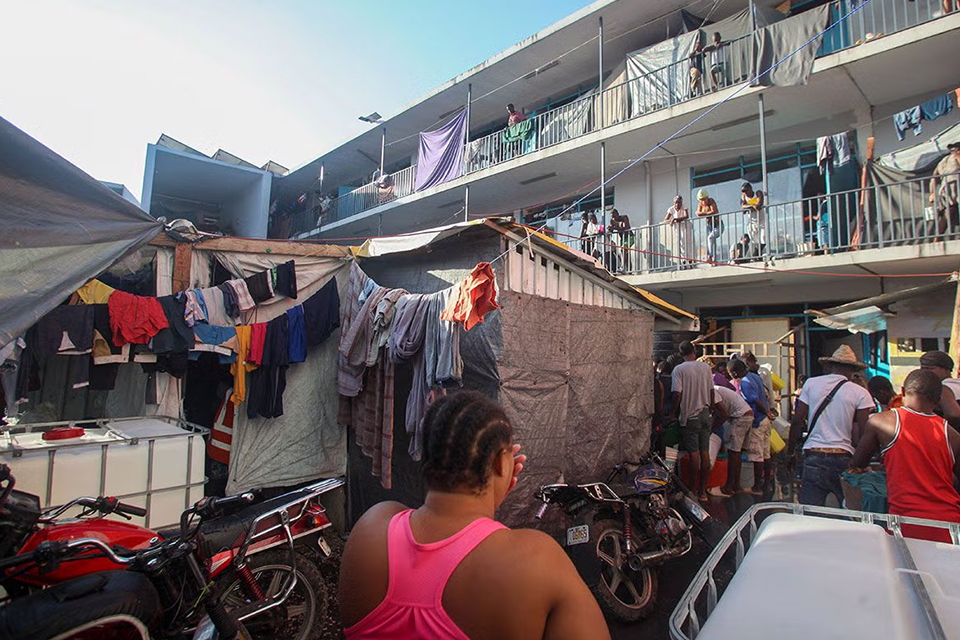Media Factsheet Haiti: Impact of ongoing violence on women and girls
New York–1 May 2025: Haiti’s escalating gang violence has pushed the country to the brink of collapse, with armed groups controlling key neighborhoods of Port-au-Prince and carrying out mass atrocities. Ongoing gang violence in Haiti has displaced more than a million people, nearly a tenth of the population, and the security breakdown is landing hardest on women and girls, eroding their safety, health, and basic human rights.
Date:

Here are some ways the ongoing violence is impacting women:
Overall facts and figures
- Over half (55 per cent) of the displaced population are women and children.
- 47 per cent of women and girls in Haiti will need humanitarian aid in 2025.
- Women’s access to health services is hampered and their unpaid care work has significantly increased, with several healthcare facilities and over 900 schools shut down due to insecurity.
Gender-based violence
- Sexual and gender-based violence is on the rise – especially in displacement sites where shelter, sanitation, and protection are severely lacking.
- Women are most targeted group of sexual violence[1] (including rape, gang rape, and rape with kidnapping and killing) and are the most vulnerable at home when gangs raid homes in a neighbourhood during an attack.
- Girls tend to be more vulnerable while in the street.
Food insecurity
- 5.7 million people in Haiti experience high levels of acute food insecurity.
- About 1 million households headed by women face acute food insecurity.
- Women’s food security is worsening, compared to August 2024, in a number of areas. In displacement camps, 65 per cent of female-headed households now face acute food insecurity; in the Port-au-Prince metropolitan area, 60 percent; in the Rest-of-West region, 50 per cent; and in Artibonite, 40 per cent.
UN Women calls on the international community, governments, humanitarian organizations, donors, development and private sector partners to:
- Provide emergency food aid and cash assistance to female-headed households.
- Establish income-generating activities to strengthen women’s self-reliance and livelihoods.
- Support women’s organizations so they can effectively advocate for their rights and needs and provide services to survivors of violence.
[1] UN Monitoring, Analysis and Reporting Arrangements (MARA), April 2025. SRSG on Sexual Violence in Conflict.